By DLLC – Law Firm in Singapore
7 Things to Know about Commercial Lease Agreements in Singapore
Never before in the history of Singapore have lease contracts been easier to navigate. Today, the rights of landlords and tenants are well-balanced and transparent, largely due to the implementation of the Code of Conduct for retail agreements.
This framework has been instrumental in creating a fair and clear negotiation process for both parties involved in retail leasing. If you’re a tenant looking to rent a commercial space, or a landlord aiming to lease your property, here are essential aspects of commercial leasing agreements you need to understand:
1. The Code of Conduct
The Code of Conduct is an initiative introduced by the Singapore Business Federation. It establishes the guidelines and negotiation principles for landlords and tenants to foster fair negotiations for lease contracts.
The Code applies to all retail premises in Singapore located in:
- Shopping centres
- Office buildings
- Industrial and business parks
- Mixed used developments
- Shophouses and shop flats
- Hotels
- Community centres
- Recreation and social clubs
- Museums, schools and hospitals
- Petrol kiosks, MRT stations, Bus interchanges and airports
The Code is divided into 4 parts:
- Conduct and spirit of negotiations
- Leasing principles for key tenancy terms
- Leasing principles for confidentiality and data transparency
- Dispute resolution and enforcement of the Code
This Code works alongside the Lease Agreement for Retail Premises Act 2023 to provide a standardised legal framework that enhances protection for both parties, facilitates equitable lease negotiations, and strengthens enforcement of fair leasing practices throughout Singapore’s retail sector.
2. Lease Agreement for Retail Premises (LARP) Act 2023
The Lease Agreement for Retail Premises (LARP) Act 2023 is a piece of legislation established to set up the Fair Tenancy Industry Committee. This Act delineates the terms under which retail premises may be leased, outlines methods for resolving disputes concerning these terms, and deals with other related matters.
For tenants, the LARP Act strengthens protections by ensuring that commercial lease agreements are equitable and transparent. Meanwhile, for landlords, this Act clarifies their rights and responsibilities, making the management of their properties more straightforward.
3. Qualifying Lease
A qualifying lease is a lease agreement (which includes a licence, sub-lease and sub-licence) with a term of at least one year. It applies to an extension or renewal of the commercial lease provided it was signed after June 2021 (the date the Code of Conduct came into effect).

4. Terms Tenants Should Know
There are several key stipulations in the Code of Conduct that landlords and tenants need to consider, such as:
- Is there exclusivity in the agreement?
- Who bears the costs of preparing the lease agreement and third-party costs (e.g., point-of-sale system, fees for tenant-initiated requests)?
- Who bears the advertising and promotion charge and service charge?
- What happens if the lease agreement is terminated due to the landlord’s redevelopment of the property?
- How is the sales performance measured? Is there a gross turnover component?
- What if the tenant terminates due to exceptional circumstances?
- How much of the security deposit has to be paid?
- Is there an alteration to the floor area?
- Who pays for the building maintenance charges?
- What is the rental formula to be applied?
- Do the confidentiality clauses in the lease agreements apply to both the landlord and tenant?
- Has the sales data by trade been provided by the landlord to the tenant (especially for malls)?
- Has the landlord shared the sales data every 6 months during the lease term?
These terms are usually presented in a checklist format along with the first draft of the commercial lease agreement. The landlord completes this checklist and hands it over to the tenant for review. If there are any deviations from the standard terms (meaning any differences from the usual terms or additional terms added), then the landlord is required to clearly disclose these changes.
5. What to Do When Parties Disagree with the Draft Lease Agreement
The Code allows for permitted deviations that both parties must agree to in order to cater to the needs of tenants and landlords in exceptional situations. For the permitted deviations to be approved, the tenants and landlords must notify the Fair Tenancy Pro Tem (FTPT) Committee by making a declaration to the committee of the amendments. The four clauses where a mutually agreed permitted deviation can be made are as follows:
- Exclusivity
- Sales Performance
- Security Deposit
- Rental Structure
If the landlord insists that the tenant accept the deviations, the tenant can file a complaint with the FTPT Committee for non-compliance. The committee may then choose to “shame” the non-complying party after it has carried out its own assessment.
6. What to Do if There Is Non-compliance After Signing the Commercial Lease Agreement
If there is non-compliance by either party after a commercial lease agreement is signed, the affected party may apply for the Dispute Resolution Procedure as set out in Part 4 of the Lease Agreement for Retail Premises Act 2023.
In short, the affected party should first file a complaint with an authorised dispute resolution body (e.g., Singapore Mediation Centre) to resolve the issue. If the matter cannot be resolved with mediation, the affected party may apply for an adjudicator to be appointed to hear and determine the dispute.
7. Specialised Legal Counsel is Available
Navigating commercial lease agreements or resolving disputes can be complex, which is why tenants and landlords are encouraged to seek specialised counsel from lawyers well-versed in commercial leases. Professional legal advice can clarify rights, responsibilities, and the finer points of commercial lease agreements, ensuring that both parties make informed decisions and understand the implications of their actions.
If you are looking for expert legal advice, do not hesitate to reach out to DLLC. Our team of experienced business lawyers and civil lawyers is well-equipped to assist you with any aspect of commercial leasing or disputes. We provide tailored advice to meet your specific needs and ensure that your interests are protected throughout your leasing journey.







